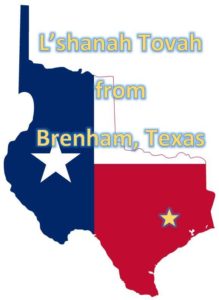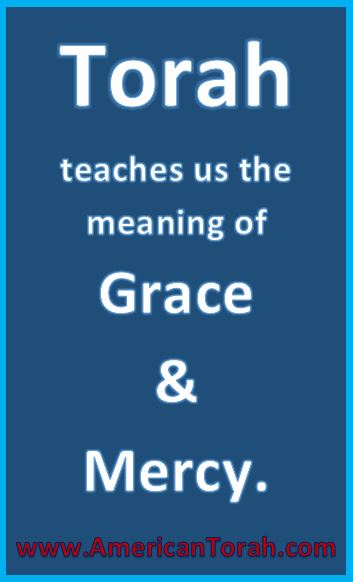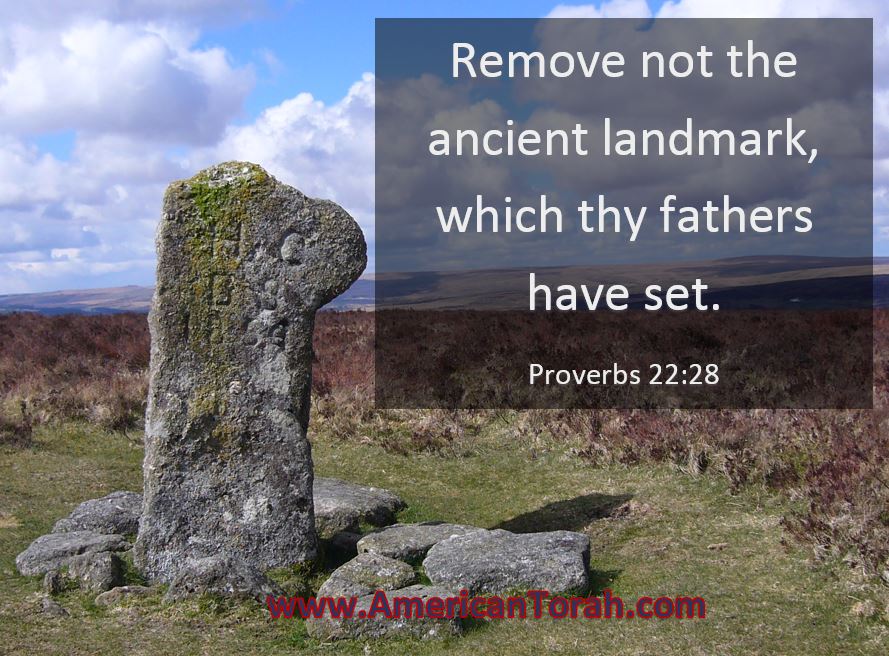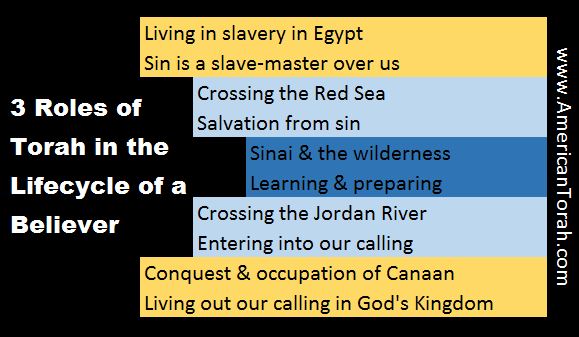God’s timing rarely aligns with ours. When God decides it’s time to move, it’s never what we think is the right time. Allow me to explain by way of an example.
God told Abraham that his descendants would live as foreigners for 400 years and that they would be mistreated and enslaved during that time. God promised to punish the nation that mistreated them and to rescue the people. (Genesis 15:16) Certainly the wise men of Israel living in Egypt prior to the Exodus knew of this promise and they probably put on prophecy conferences and published endless pamphlets claiming that “This is the year. Surely this is the year that God will rescue us!”
And the same thing the next year and the year after that. Some bright individual must have thought, “Well, God said ‘in the fourth generation.’ He didn’t mean the fourth from the promise, so maybe it’s the fourth from our enslavement. And how long is a generation, anyway? Forty years? One hundred years? Is it four hundred years from when we were first enslaved, when we entered Egypt, when Joseph was enslaved, when we were enslaved, when God made the promise to Abraham, or when Abraham first came to Egypt? Oy vey!”
Sound familiar? I’ve heard the same kinds of thing about the establishment of modern Israel and the Second Coming for as long as I can remember. Talk of blood moons and Russian tanks in Lebanon will get little more from me than a skeptically raised eyebrow.
We know from Exodus 12:41 that it was precisely 430 years from the day God gave Abraham the promise until the day the promise was fulfilled, but God told him it would be 400 years. If “400 years” was ever meant to be taken literally, then the clock didn’t start ticking until some unspecified date later, and God didn’t tell anyone when that day was. At least it’s not recorded in Scripture. Prophecy is always this way. If it’s from God, then you can count on it being true, but you can’t necessarily count on this or that day. God does this deliberately, I believe to keep us from thinking we can get away with anything we want so long as we straighten up before the deadline. He gives us signs to watch for, but not a specific date.
Stephen told us in Acts 7:17 that, when the time grew near for God to fulfill His promise, the people multiplied, and only then were they enslaved. The Hebrews lived free and prosperous lives in Egypt until after Joseph died. In fact, when God decided it was time to rescue them, they didn’t even need to be rescued. The fulfillment of God’s promise began when he made them to prosper beyond all expectations so that the Egyptians would become jealous and turn against them. By that time, they had probably decided they didn’t need God’s promise after all. Who would want to leave such a great setup? Sometimes God turns the world against us to remind us of who we are or so that we will be able to appreciate the greater things He has in store for us down the road.
When the time was right, the Hebrews multiplied. The Egyptians grew jealous and enslaved them. The Hebrews cried out to God. Then God destroyed the Egyptians and rescued Israel.
There was nothing any of them could do to stop or even slow the inexorable approach of God’s day of redemption. When God decides that He needs to teach the nations a lesson, He will make sure the lesson is delivered and learned. There are no snow days in this school. The Hebrews could not have failed to multiply, the Egyptians could not have set them free ahead of schedule, and they could not have kept them past the due date.
So the Lord brought us out of Egypt with a mighty hand and an outstretched arm, with great terror and with signs and wonders. -Deuteronomy 26:8
As with everything else that happened to the patriarchs, the Exodus was a prophecy of an even Greater Exodus yet to come. Jeremiah and Isaiah (among others) write of this future Exodus as a time of great suffering followed by great revival and restoration. As a mixed multitude left Egypt and was absorbed into Israel (Exodus 12:38), so will a vast mixed multitude leave the world and be absorbed into Israel in the last days (Isaiah 60:4-9). As Egypt practically begged the Hebrews to leave and to take as much gold and silver as they could carry with them, so will the world send the throngs of returning Israelites, both natural and adopted, back to the Land along with whatever financial, material, and technical resources might be required to accommodate the massive numbers of new Israelites. (Isaiah 60:9-16) Just as Egypt suffered even more for refusing to let the Hebrews go, so will those nations who refuse to cooperate in the Greater Exodus suffer more than others. (Isaiah 60:12)
When will all this happen? I’m sure that nobody alive today knows. We have been told to watch for signs, but the signs are ambiguous. Wars and rumors of wars have been with us since long before Nimrod built his cities. Will it be one generation from the establishment of the modern state of Israel? How should we count a generation? How do we know that this Israel isn’t just another Maccabean revolt destined fade away or to be crushed by the next iteration of the Roman Empire? I don’t know the answer to these questions and I am suspect of anyone who claims they do.
Here is something I do know, however: Our God lives and His promises are sure. He never fails and even if He waits longer than we would prefer, He never forgets.
Here is another thing you can count on: God’s promises concerning the New Covenant and the Greater Exodus were made only to the house of Israel and the house of Judah. (Jeremiah 31:31-32) There is no “church” in that equation. God’s promises were not made to Rome or Babylon or Washington, D.C. If you want to be a party to the New Covenant, then you must become a Hebrew. (Notice that I did not say you must become a Jew!) You must cross over from Egypt to the Wilderness, from then from the Wilderness to the Promised Land.
What does this mean in practical terms? It means acknowledging your personal failure to live up to God’s standards and throwing yourself on His mercy. Ask His forgiveness and commit to keeping His commandments.
Obedience to God’s Law is not required to leave Egypt. Remember that the Law wasn’t given to Israel until three months after they had crossed the Red Sea and arrived at Sinai. But also remember that God still expected them to keep it. Nobody would be cut off from the nation for an occasional lapse, but total rejection of God’s commandments did bring either death or being “cut off from the people.” We don’t obey to be saved from sin (Egypt). We obey because we are grateful for God’s salvation and because we love Him.
I strongly recommend reading all of Jeremiah 31 and Isaiah 56 for some perspective on God’s covenant with Israel and what He requires of gentiles who wish to be made party to it. “Let no foreigner who is bound to Adonai say, ‘Adonai will surely exclude me from His people.’ …And foreigners who bind themselves to Adonai to minister to him, to love the name of Adonai, and to be his servants, all who keep the Sabbath without desecrating it and who hold fast to my covenant—-these I will bring to my holy mountain and give them joy in my house of prayer.”
With freedom and citizenship comes responsibility. We are no longer slaves to sin (Egypt), but we have voluntarily made ourselves slaves to our Creator and Messiah Yeshua. If we serve Him faithfully, if we love Him, we will keep His commandments.




 God wants us to keep His law, but He doesn’t expect perfection. He never did or else Torah1 wouldn’t include instructions for handling missteps. You will fail, but it will be OK in the end if you trust in God. That doesn’t mean obedience is optional. Knowingly disregarding what God has told you to do is the same as rejecting God himself. Either He is King or He isn’t.
God wants us to keep His law, but He doesn’t expect perfection. He never did or else Torah1 wouldn’t include instructions for handling missteps. You will fail, but it will be OK in the end if you trust in God. That doesn’t mean obedience is optional. Knowingly disregarding what God has told you to do is the same as rejecting God himself. Either He is King or He isn’t.


 Forgive all debts to fellow believers/Hebrews (whether native-born Israelites or grafted in) at the end of every 7th year. Don’t be stingy. Lend to your poor neighbors at zero percent interest with the full expectation that they will pay you back no matter how much time is left. If they don’t pay you back on time, don’t hold it against them.
Forgive all debts to fellow believers/Hebrews (whether native-born Israelites or grafted in) at the end of every 7th year. Don’t be stingy. Lend to your poor neighbors at zero percent interest with the full expectation that they will pay you back no matter how much time is left. If they don’t pay you back on time, don’t hold it against them.
 The slavery of the Hebrews in Egypt is like the slavery we all suffer under sin. Torah reveals our low state and prompts us to cry out to God for mercy. It leads us to a knowledge of our need for a Savior, and if we don’t reach out to Him, it is a witness against us at the final judgment. The Hebrew slaves didn’t yet know the details of God’s commands, but like the sinner who hears the call to repent, they knew that they weren’t free. Only when we become aware of our chains and beg forgiveness does God lead us to freedom. He doesn’t demand anything of us at that point except humility and faith. “Stand back,” Moses said at the shore of the Sea, “and behold the salvation of Adonai!” With nothing but faith to walk, they crossed the Red Sea and left the defeated Egyptians behind. Sinai was still ahead in the wilderness.
The slavery of the Hebrews in Egypt is like the slavery we all suffer under sin. Torah reveals our low state and prompts us to cry out to God for mercy. It leads us to a knowledge of our need for a Savior, and if we don’t reach out to Him, it is a witness against us at the final judgment. The Hebrew slaves didn’t yet know the details of God’s commands, but like the sinner who hears the call to repent, they knew that they weren’t free. Only when we become aware of our chains and beg forgiveness does God lead us to freedom. He doesn’t demand anything of us at that point except humility and faith. “Stand back,” Moses said at the shore of the Sea, “and behold the salvation of Adonai!” With nothing but faith to walk, they crossed the Red Sea and left the defeated Egyptians behind. Sinai was still ahead in the wilderness.